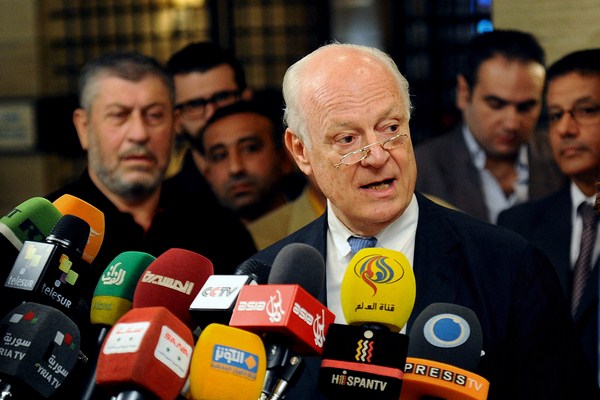Is the United Nations heading for another diplomatic humiliation in Syria? Over the past week, analysts have been picking over a proposal by the organization’s envoy, Staffan de Mistura, to initiate a series of local cease-fires between the Syrian government and at least some rebel groups, beginning in the embattled city of Aleppo. In a best-case scenario, these “incremental freeze zones” could coagulate into a wider cessation of hostilities, allowing all parties to focus on the main fight against the so-called Islamic State (IS).
The plan has received some slight encouragement from the Syrian regime and a great deal of criticism from outside observers. The Economist concludes that the plan has “little hope of success” because both the government and even relatively moderate rebel groups feel that they have more to gain from further fighting. In private, some Western officials worry that the Syrian military could crush opposition in centers like Aleppo with a big push in coming months. Having reviewed the details of the local cease-fire plan in depth, my colleague James Traub warns that even if it does somehow gain traction, it might still look like “cowardly submission” to Damascus.
Western officials who have worked on the Syrian war for over three years would doubtless prefer a more decisive and less morally murky denouement. As Traub observes, gradualist approaches to conflict resolution “almost always postpone existential questions to some future date in the hopes that they will then be easier to decide.” The U.N. has a long history of crafting cease-fires in warzones like Bosnia and Darfur that have rapidly collapsed, often in less time than they took to negotiate.

